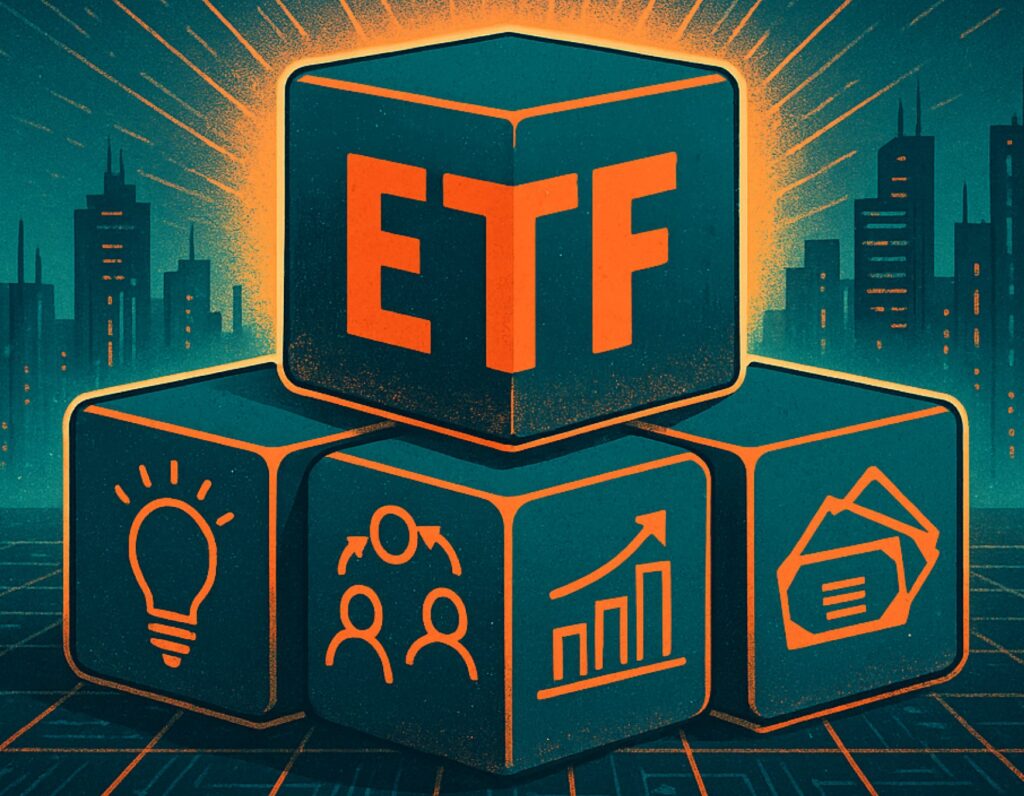Scan this article:
Enjoy paying tax? Didn’t think so. The end of FY25 is coming up, and you may be able to take steps to reduce that tax bill.
Here's what Superheroes are checking before 30 June to get their tax essentials in order.
1. Understand how your trades are taxed
Sold this year? You might have made a capital gain or a loss. How it’s taxed depends on whether you’re seen as an investor or a trader.
If you’re an investor
Most Superhero customers fall into this category.
If you’re buying and holding shares, ETFs or other investments with a long-term mindset, your profits are generally subject to Capital Gains Tax (CGT) when you sell.
Here’s how CGT is calculated:
- You calculate your capital gain or loss for each asset you sell.
- Capital losses (from this year or carried forward) are subtracted from your total capital gains.
- If your net position is positive (i.e. capital gains), you may also be eligible to apply the CGT discount – usually 50% for individuals or trusts – but only on assets held for 12 months or more.
The final result is your net capital gain, which is included in your assessable income and taxed at your marginal tax rate.
📌 If your capital losses are greater than your gains, you won’t pay CGT this year. Any unused loss can be carried forward to future years. More on this in the next section.
If you're unsure how this applies to you, it’s best to speak to a registered tax agent.
If you’re trading in a “business” like manner
If you’re buying and selling frequently, working to a system or strategy and trying to profit from short-term price movements, the ATO may treat your activity as a trading business.
In this case:
- Profits are taxed as part of your ordinary income, not as a capital gain
- Losses may be fully deductible, depending on your circumstances
The ATO looks at several factors to decide this, including:
- How often you trade
- The size and scale of your activity
- Whether you have a clear plan or business structure
- Whether you rely on trading as a source of income
Trading like a business isn’t just about volume – it's about intention and how structured your activity is.
If you're not sure how your activity is classified, it's a good idea to get advice from a registered tax agent. Superhero doesn't provide personal tax advice, but we give you the tools to stay informed.
Note: Trades must settle before 30 June to count for this financial year.

Find them under “Tax Reports” in your Profile tab.
2. Make the most of capital losses
If you’ve made capital gains this year, you might look at any underperforming investments. Some investors sell a loss-making asset before 30 June to help offset gains and reduce your tax bill – a strategy known as tax loss harvesting.
You can also carry forward unused capital losses to offset gains in future years.
📌 Make sure any decisions align with your overall investment strategy and goals. Selling purely for tax reasons may not make sense if the asset still fits your long-term plan.
🚨 Take note of the ATO’s wash sale rules. Selling a stock just to claim the loss and buying it back shortly after is considered tax avoidance.
3. Dividends and franking credits
If you earned dividends this year, it’s important to review:
- What you received in dividend payments
- Whether franking credits were attached
Dividends are a form of income paid by companies to shareholders, usually from profits. If you hold ASX-listed shares or ETFs that include Australian companies, you may have received dividends this year, even if you didn’t trade.
What are franking credits?
Some Australian companies pay dividends that come with franking credits. These credits represent the tax the company has already paid on its profits, usually at the company tax rate (currently 30%).
When you receive a franked dividend, you’re essentially getting a credit for the tax already paid by the company. This is designed to avoid “double taxation,” so you’re not taxed twice on the same income.
Here’s how it works:
- The dividend income and the franking credit are both included in your tax return
- You’re taxed at your marginal tax rate
- If your personal tax rate is lower than the company tax rate, you may get a refund for the difference
- If your tax rate is higher, you may still owe tax on the top-up amount
Depending on your own situation, franking credits can reduce the total tax you pay or even result in a refund.
You can see your franking credits in your Income Report, which can be found under “Tax Reports” in your Profile tab.

4. Share transfers or corporate actions
Moved shares in or out of Superhero? Took part in corporate actions?
These events can affect your cost base – the amount the ATO uses to calculate your capital gain or loss when you sell an investment. If your cost base changes and you don’t update your records, you could end up overreporting or underreporting your gains.
Keep an eye out for:
- Off-market transfers
If you transferred shares into or out of Superhero, you’ll need to make sure your original purchase price is recorded. Superhero lets you enter your cost base at the time of transfer in, but if you’re transferring shares out of Superhero, you may need to provide this information to your new provider, as it may not carry over automatically. - Share splits
A share split increases the number of shares you hold and reduces the cost base per share. The total cost base stays the same, but it's spread over more shares.
- Buybacks
If a company buys back its own shares, you may need to separate the capital component from the dividend component. This can affect how you calculate your CGT and franking credits. - Mergers and acquisitions
If a company you hold was involved in a merger or takeover, it could affect your cost base, especially if you received new shares, cash or both. These changes may impact your capital gains when you sell, so keep a record of what happened and when.

5. Check your W-8BEN (or W-9) status
If you hold US shares with Superhero, it’s important to have the right tax form on file. This ensures the correct withholding tax rate is applied to any dividends you receive.
- Non-US individuals need a valid W-8BEN form
- Non-US entities (like companies or trusts) require a W-8BEN-E form
- US residents must submit a W-9 form
The W-8BEN form confirms you're not a US tax resident and may qualify you for a reduced tax rate under your country’s treaty with the US.
📌 For example, under the Australia-US tax treaty, eligible investors may be taxed at 15% instead of 30%.
✅ These forms are typically valid for up to 3 years. You’ll receive a notification from Superhero before your form expires so you can update it in time. Or if you want to update your details, feel free to reach out to hello@superhero.com.au anytime.
6. Investing but not managing your super?
EOFY is a great time to check in on your super. If you’re actively investing, it might make sense to take the same approach with your retirement savings.
You might consider:
- Making a concessional contribution (pre-tax), which can reduce your taxable income for the year. The annual cap is currently $30,000, including employer contributions.
- Making a non-concessional contribution (after-tax) to grow your super if you’ve already hit the concessional cap. Do note that the cap for non-concessional contributions this FY25 is $120,000.
Have a read of our EOFY super checklist.
Final check: review your portfolio and plan ahead
EOFY isn’t just about wrapping things up. It’s also a great time to review your portfolio and reset for the new financial year. Ask yourself:
- Are you holding onto shares that no longer align with your goals?
- Has your asset allocation drifted from where you want it to be?
- Do your investments still reflect your risk appetite?
Rebalancing your portfolio and revisiting your strategy may help you start FY25 with more clarity and control.
And remember: Superhero gives you the tools to stay on top of your investments, but we don’t provide personal tax advice. If you’re unsure how any of this applies to your situation, consider speaking to a registered tax agent.

Become a part of
our investor community
Why you should join us:
- Join free and invest with no monthly account fees.
- Fund your account in real time with PayID.
- Get investing with brokerage from $2. Other fees may apply for U.S. shares.
Read our latest articles
Make knowledge your superpower and up your skills and know-how with our news, educational tools and resources.












